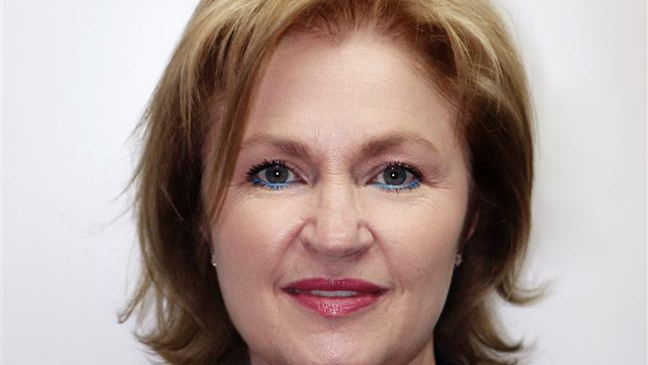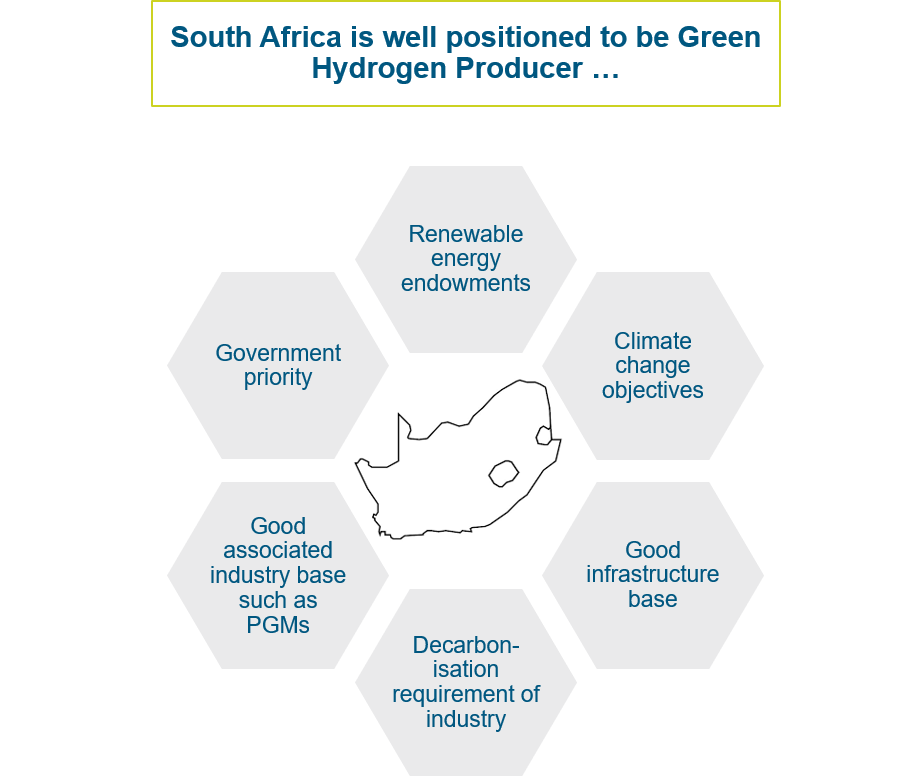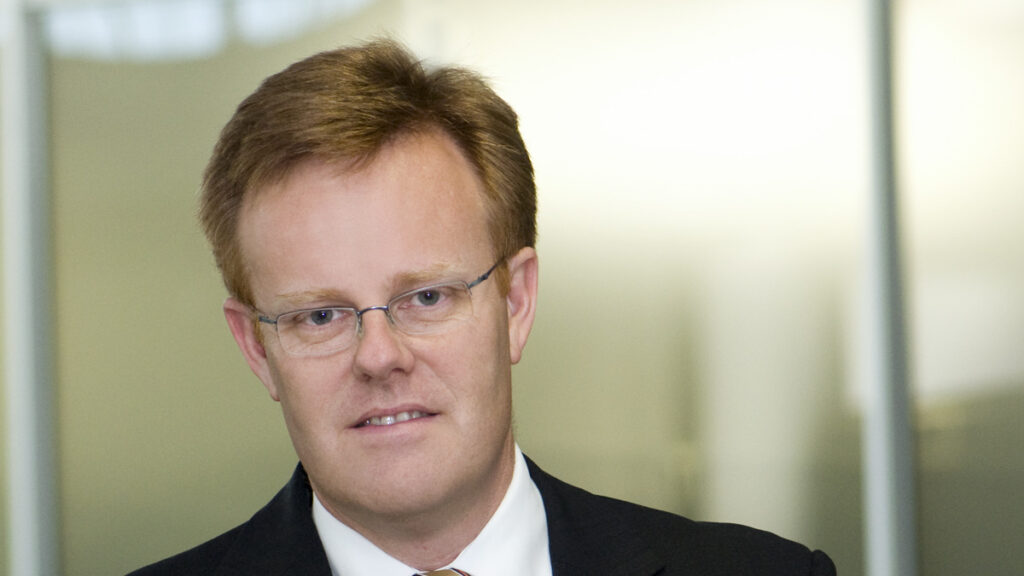The future is green
By TP Nchocho
As economies begin to slowly recover from pandemic induced adversity, it can be difficult to see the green shoots taking root amidst this gloom – except for the big pharmaceuticals and telcos that are shooting the lights out in this challenging environment.
This is understandably so; many small businesses, built through sheer hard work and the ingenuity of entrepreneurs have been instantly wiped out. At the same time, almost 12 years of our country’s gradual economic recovery and progress in curbing unemployment and poverty inflicted at the height of the financial meltdown have been undone.
Like in preceding humanitarian crises, history requires us to position ourselves strategically for a post-pandemic recovery. Notwithstanding the lingering impact of the pandemic on economies, make no mistake, the recovery is well underway. Global supply chains are realigning. Several industries shut at the onset of the pandemic are rebounding, with the localisation of products fast becoming a dominant theme. Optimists are positioning themselves to benefit from post-pandemic reconstruction efforts.
Government’s economic blueprint, the Economic Reconstruction and Recovery Plan (ERRP), has aptly scoped the terrain and pitched opportunities in what is projected to be a vastly transformed post-pandemic economy.
Key for entrepreneurs will be how to convert these opportunities into real investments
The long-awaited auction of the spectrum by the Independent Communications Authority of South Africa (ICASA) is sure to usher in a new telecoms and pricing era that is likely to drive down costs of doing business in SA.
Against the ravages of the pandemic, the resilience of our mining sector has been a bright star, and this will likely be fortified as demand increases in line with the recovery of the world economy. Manufacturing will begin to hum again once demand begins to pick up, especially demand for South African manufactured goods on the continent as it opens up to the Continental Free Trade Agreement.
Elsewhere, the rapid rate of Covid vaccinations in the US, China and across Europe – markets that are critical to SA’s fortunes is encouraging, and tourism is a sure bet to rebound, albeit on a delayed timeline.
Particularly, it is SA’s Just Energy Transition (JET) – a transition towards sustainable, low carbon and equitable energy systems – that fills the Industrial Development Corporation (IDC) with enthusiasm and a sense of purpose.
SA’s well documented energy deficit and the need to migrate towards renewable energy provide significant prospects for both entrepreneurs and investors alike
IDC’s funding in this space has been the tip of the spear that has catalysed massive investment from the private sector.
IDC-funded projects thus far have ranged in size from utility-scale to smaller-scale distributed energy solutions, either for Own-Use by (predominantly) commercial and industrial sector companies or grid connected by Independent Power Producers (IPPs).
As part of its funding activities, the Corporation has specifically sought to facilitate black-empowered and youth-empowered companies to own and operate renewable energy projects. We further sought to stimulate increased localisation of renewable energy inputs such as solar PV panels, wind towers, turbines, and energy storage solutions. With over R14 billion invested in renewable energy projects spread across the country, the IDC has also funded 25 Community Trusts, enabling active community participation in the Renewable Energy Independent Power Producer Procurement Programme (REIPPP).
As these dynamics take shape – the desire for a just transition will only become a reality if the necessary groundwork, industry planning and shaping of the future is consciously actioned. IDC, with its natural convening power, can facilitate the emergence of ecosystems that will drive new frontiers and the growth of new value chains. A hallmark of the IDC going back to its inception has been its ability to identify and create new and future industries. The economic shifts across the globe present us with opportunities to co-create new industrial pathways based on partnerships and investment flow.
In this regard, an area of intense focus for the IDC is the hydrogen economy. Hydrogen offers a credible solution to decarbonisation and replacing fossil fuels in a world that is anxious to mitigate climate change. Drawing on its experience and role in de-risking and helping establish a renewable energy industry, the Corporation is poised to play a prominent role in developing the hydrogen economy.
As we transition to a carbon-free economy, what we, as the IDC, will be supporting is a transformed economy – one that will provide economic and growth opportunities for all South Africans. We will be actively supporting the Just Transition in a post-Covid environment.
TP Nchocho is CEO of IDC
Seven steps to applying for IDC funding
- A potential client sends a business through our website or drops this at Head Office, or our regional offices spread across the country. IDC acknowledges receipt of application.
- The application is then allocated to relevant SBU for evaluation / client is then asked for more information, if necessary.
- IDC embarks on a due diligence to ascertain viability of the business plan.
- On satisfaction of due diligence, submission is then sent to EXCO for consideration
- Client is notified of the outcome. If unsuccessful ,the shortfalls and reasons for rejection are communicated to the applicant — giving them an opportunity to address our concerns. It has happened that in some cases, some applicants have been successful on their second attempt — especially after addressing our concerns.
- If EXCO approves the application, terms of contract are then drawn and both parties proceed to sign a contract.
- Satisfying all conditions precedent IDC then disburses funding.
Fueling a hydrogen economy Critical role for IDC in development of local hydrogen economy
By Joanne Bate
The growing interest in alternative and cleaner sources of energy in South Africa and across the world is driven by, amongst other things, sustainable development priorities,commitments to achieve the Paris Climate Agreement of 2015 and the need to achieve net-zero emissions by 2050.
 Joanne Bate is Chief Operating Officer at the IDC
Joanne Bate is Chief Operating Officer at the IDC
As a developing country with abundant natural resources and renewable energy sources, South Africa is well-positioned to capitalise on this global opportunity. Our natural resources – solar, wind, biomass for power generation – skills and technological capacities put us in a prime position to take the lead in the emerging hydrogen economy and the green hydrogen value chain for the benefit of all South Africans, establishing our country as a leading supplier to the world green market.
The strategic position we occupy has a solid foundation. As early as 2008 government led the way with policy direction. The Department of Science, Technology and Innovation launched Hydrogen South Africa to develop a hydrogen roadmap to integrate and create an inclusive hydrogen society. The focused efforts have led us to this point. The opportunities in green hydrogen are clear.
Critical role for IDC in development of local hydrogen economy
Hydrogen is exceptionally energy dense per unit of weight and is no more difficult to store and transport than liquified natural gas (LNG). Through its direct combustion, its use in fuel-cells and its use as an industrial feedstock, it can decarbonise a greater range of sectors than renewable electrical energy alone. Hydrogen can be produced in collaboration with renewable energy almost anywhere in the world. Importantly, in the context of global climate change, the use of hydrogen that is produced from renewable energy produces no carbon emissions.”
Earlier this year government entrusted the Industrial Development Corporation (IDC) to be the development and commercialisation champion of the hydrogen economy. Sustainable development and investing in large-scale projects with meaningful economic and social impact motivates IDC’s investment decisions. The Corporation is already an active promoter of the green economy. IDC’s exposure to this sector has grown to R14bn, further underscoring our commitment to supporting technologies that seek to promote and support the growth of clean energy sources.
The IDC will focus on identifying investment opportunities that will be progressed to enable pilot projects to be implemented in the short term. The Corporation will support sector linkages critical to developing and extracting value from the entire green hydrogen value chain. Interactions thus far with stakeholders have been positive, and some companies are well poised to seize future opportunities in the commercialisation of the green hydrogen economy. Providing a comparative advantage is the fact that South Africa holds more than 80% of the world’s platinum reserves and is home to the largest platinum mining companies in the world. Platinum is a key component of fuel cells.
Central to our success will be private and public sector collaboration that enable us to commercialise the opportunities that the hydrogen economy provide us. Appropriate national policies, strategies and regulations lay a solid foundation for progress.IDC believes that government has already provided policy direction. What remains is for all stakeholders to play their respective roles and, amongst other things, bring their expertise, funding capabilities and a commitment to co-operate in value chain development – supporting industries and downstream adoption of hydrogen technologies. This will ensure that we convert the opportunity and drive our country’s just energy transition.
Joanne Bate is the Chief Operations Officer at the IDC

IDC, SASOL partner to develop hydrogen economy
By Rian Coetzee
Adapt or die is a mantra often used by contrarians seeking to keep pace with the fast-transforming economic and technology landscape.
Ironically, both IDC and SASOL’s agility built over several decades of resilience enabled the two entities to stay ahead of the curve and their peers. Established in 1940 through an Act of parliament, the IDC has grown to become the most prominent development finance corporation in sub – Saharan Africa. Such is the IDC’s reach that it has exposure in almost all critical sectors of the economy.
 Rian Coetzee is Divisional Executive for Industry Planning and Project Development at the IDC
Rian Coetzee is Divisional Executive for Industry Planning and Project Development at the IDC
In fact, it is the IDC’s support that led to the creation and growth of SASOL. This home-grown business initially started as an oil production company that has developed into a global synthetic fuels and chemicals group. Its foray into competitive markets, including in the US –speaks volumes of its phenomenal growth.
Banking on their collective expertise and experience, the two pillars of South African industrialisation have signed a memorandum of understanding to collaborate on initiatives aimed at fast-tracking the commercialisation of South Africa’s hydrogen economy. With the global demand for energy expected to increase by up to 40% by 2050 and given the highly carbonised local economy, both the IDC and SASOL consider the hydrogen economy an important enabler of the transition to a renewable energy mix.
In addition, the two entities will, among others, collaborate on a non-exclusive basis in advocating at relevant international fora for policy frameworks to enable a hydrogen economy; develop pilot and commercial scale hydrogen projects to pioneer viable and sustainable solutions; access local and international financing options and pursue strategic projects that benefit the country’s energy transition and economic developments goals.
The development of the hydrogen industry is a key enabler in South Africa’s just transition to a decarbonised future. Hydrogen has the potential to decarbonise various industrial sectors and IDC intends on getting involved in the development of those catalytic projects needed to develop this new industry.
IDC is optimistic about the partnership, looking forward to working with Sasol in identifying and co-developing such catalytic projects. IDC involvement in developing the hydrogen industry also provides opportunities to fulfil its development mandate including job creation and opportunities to involve black and women entrepreneurs.
Development of the hydrogen economy has been identified by SASOL as an opportunity for South Africa to become a credible exporter of sustainable energy and chemical products, such as hydrogen, ammonia and sustainable aviation fuel also contributing to much-needed employment opportunities.
THe parties’ ambition is to lead and co-create South Africa’s hydrogen ecosystems through strategic partnerships, leveraging proprietary technology and integrated value chains as part of the nation’s just energy transition.
Rian Coetzee is the Divisional Executive for Industry Planning and Project Development at the IDC
The Just Transition is a delicate balancing act
By Reginald Demana
How best can we ensure a Just Energy Transition (JET) without impacting the lives of the most economically vulnerable segment of the global population?
It’s a difficult question depending on whom you ask. Since the watershed 2009 United Nations Climate Conference commonly referred to as the Copenhagen Summit and held in Denmark, most industrialised countries, including a segment of lobbyists, have consistently rooted for the adoption of a plan that seeks to mandate cuts in carbon emission to keep average global temperatures from rising any higher than 2 degrees celsius.
 Reginald Demana is Divisional Executive for Mining, Metals, Infrastructure and Energy at the IDC
Reginald Demana is Divisional Executive for Mining, Metals, Infrastructure and Energy at the IDC
That carbon emissions are toxic to the environment and drive climate change is indisputable, making a significant reduction in emissions an imperative. This is a common sense position. We have over the years witnessed the impact of climate change on our environment — and this is primarily the reason for the IDC’s commitment to renewable sources of energy.
Based on forecasts from the International Energy Agency (IEA), it is evident that to cut carbon emissions by three quarters over the rest of this century while maintaining economic growth, some developing nations would have to develop alternative energy sources, which is what South Africa is already doing.
Over the past decade, the Industrial Development Corporation (IDC) has invested over R14-billion in various renewable energy projects spread across the country. Add private sector-led investment, which has accelerated in recent times, and South Africa’s commitment to a green economy is taking root and so too is the IDC’s commitment to renewables.
Yet on the flip side, some developing countries have been vocal in their opposition to what they view as a bitter prescription negatively impacting their energy shortages and resulting challenges. The fact is that nearly half of the world’s electricity comes from coal. In sub-Saharan Africa, coal and firewood remain embedded and affordable options, mainly explaining the legacy reliance on coal-generated power and the extent of deforestation in the region.
The poor will be the most impacted if the transition to green energy is not carefully managed
There are a multitude of societal benefits of reduced climate risks, sustainable economic growth, enhanced air quality and human health, however, asking populations across the continent to abruptly abandon fossils without a credible transition path is unrealistic and the converse of a just energy transition. We need to be conscious of the potential costs associated with accelerated and short-term transition processes. The impact of this process will not be equally felt by all and there is a need to ensure that the poor and marginalised are not disproportionately affected.
A just transition acknowledges that those who rely on fossil fuel production for their livelihood, or those in countries like South Africa, who have minimal alternatives available, may still need to rely on fossil-fuel energy consumption to meet current developmental needs until alternatives are available. Even so, developing countries are taking steps to enable the decarbonisation of local energy systems. In doing so, they are carrying a disproportionate share of the burden of the global energy transition.
Here at home, given the accelerated deployment of renewable energy, we need to ensure negative impacts to the coal sector and value chains will be minimised, especially within the South African context of poverty, inequality and unemployment.
The just transition is a delicate balancing act. It is about reducing Greenhouse Gas Emissions from the coal sector and reducing water usage in power generation, ensuring better quality jobs, and using our ample solar resources and other green energy sources in South Africa to ensure competitive electricity costs, which will be a crucial enabler for our economic growth.
What we need is a just transition to a low-carbon economy, a transition that supports workers and communities currently reliant on unsustainable industries and energy sources. This must be the starting point in endeavours to reach a just and equitable solution.
Reginald Demana is Divisional Executive for Mining, Metals, Infrastructure and Energy at the IDC